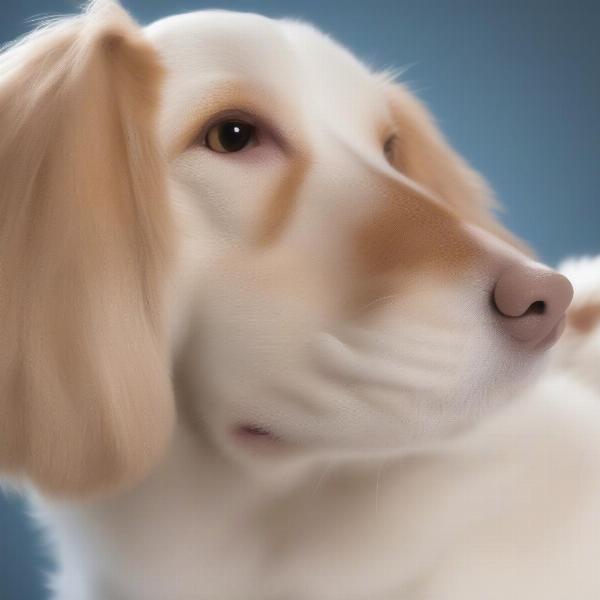Dog anal glands, also known as anal sacs, are small, paired pouches located on either side of a dog’s anus. These sacs contain a foul-smelling fluid that is typically expressed during defecation. While “dog anal gay” may be a search term reflecting curiosity or confusion, it’s important to focus on the biological function and health aspects of these glands. Understanding their role can help owners ensure their dog’s comfort and well-being.
The Role of Anal Glands in Dogs
Anal glands primarily serve as scent markers. The fluid they produce has a unique odor that helps dogs identify each other. In the wild, this scent marking plays a role in territorial behavior. Although less critical for domesticated dogs, the glands still function similarly. While the “dog anal gay” keyword might suggest a different context, the reality is rooted in basic canine biology. These glands can sometimes become problematic, requiring attention from owners.
Common Anal Gland Problems and Solutions
Anal gland issues can range from impaction to infection and abscesses. Impaction occurs when the glands don’t empty naturally, leading to discomfort and potential blockage. Signs of impaction can include scooting, licking the area excessively, or a fishy odor.
If you suspect your dog is experiencing anal gland issues, it’s essential to consult a veterinarian. They can properly express the glands and address any underlying infections. While the term “dog anal gay” may lead some to inappropriate online searches, it’s crucial to prioritize your pet’s health and seek professional guidance.
Home Care and Prevention
Regular exercise and a high-fiber diet can help promote natural expression of the anal glands. Maintaining a healthy weight can also prevent problems. dog gay anal While home expression is possible, it’s best learned from a veterinarian to avoid injury.
When to Seek Veterinary Attention
If your dog exhibits persistent scooting, discomfort, or a foul odor from the anal area, consult a veterinarian immediately. black dog ballroom nq Ignoring the problem can lead to more serious complications, including infection and abscess formation.
Signs of Anal Gland Infection
Symptoms of infection may include redness, swelling, pain, and discharge. beastiality dog Your veterinarian can diagnose the infection and prescribe appropriate antibiotics or other treatments.
 Dog Anal Gland Expression
Dog Anal Gland Expression
Conclusion
Understanding the function and potential problems associated with dog anal glands is crucial for responsible pet ownership. While the search term “dog anal gay” might lead some astray, focusing on proper care and veterinary advice ensures your dog’s comfort and well-being. Regular checkups and addressing any unusual signs promptly can prevent more serious issues from developing.
FAQ
-
How often should my dog’s anal glands be expressed? It varies depending on the dog, but most dogs express naturally during defecation. If problems arise, consult your vet.
-
Can I express my dog’s anal glands at home? While possible, it’s recommended to learn the proper technique from a veterinarian first to avoid causing harm.
-
What causes anal gland impaction? Factors such as obesity, allergies, and soft stools can contribute to impaction.
-
Are anal gland problems painful for dogs? Yes, impaction and infection can be very uncomfortable.
-
Is there a way to prevent anal gland problems? Maintaining a healthy weight, a high-fiber diet, and regular exercise can help.
ILM Dog is your trusted resource for comprehensive dog care information. We provide expert advice on everything from breed selection to health, training, nutrition, grooming, and more. Whether you’re a new dog owner or a seasoned pro, we offer practical tips and resources to help you provide the best care for your canine companion. We understand the importance of accurate information, especially when dealing with potentially sensitive topics. Contact us today for all your dog care needs! Email: [email protected], Phone: +44 20-3965-8624. Visit ILM Dog for more information.